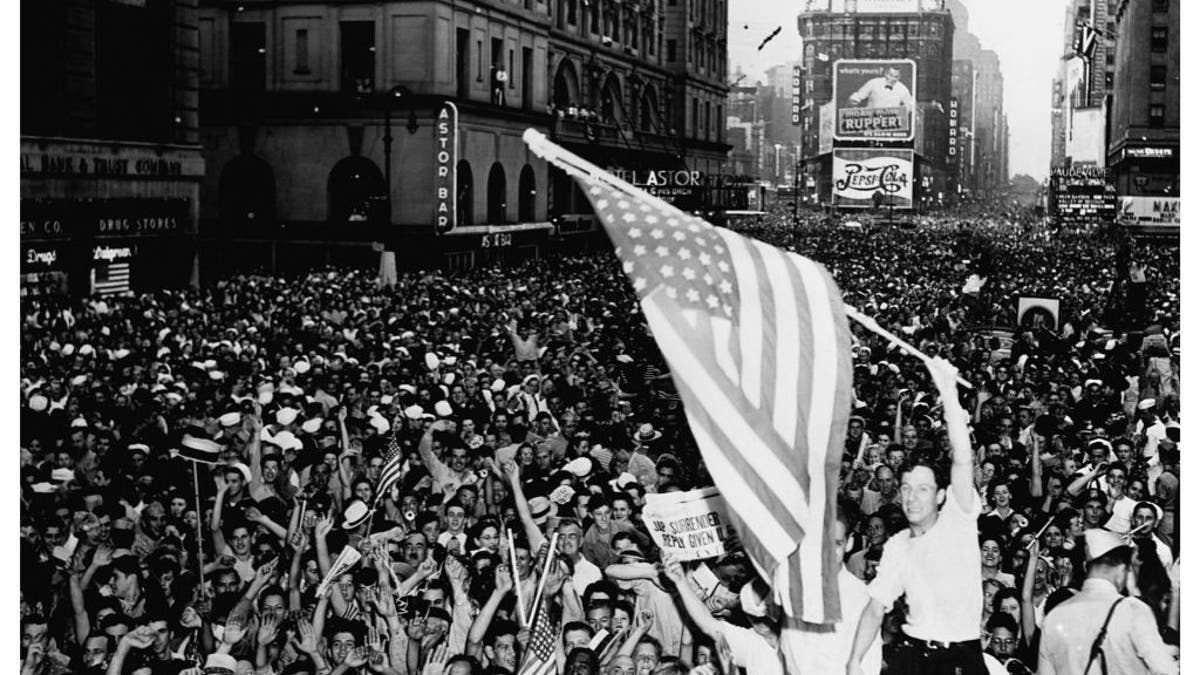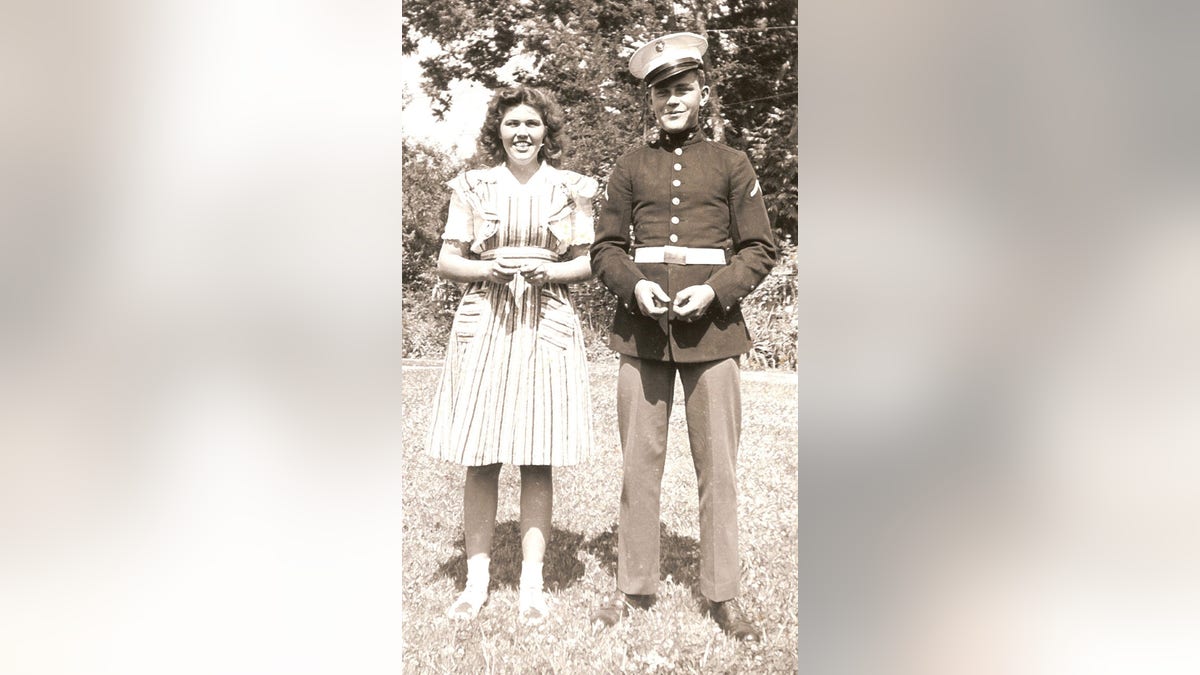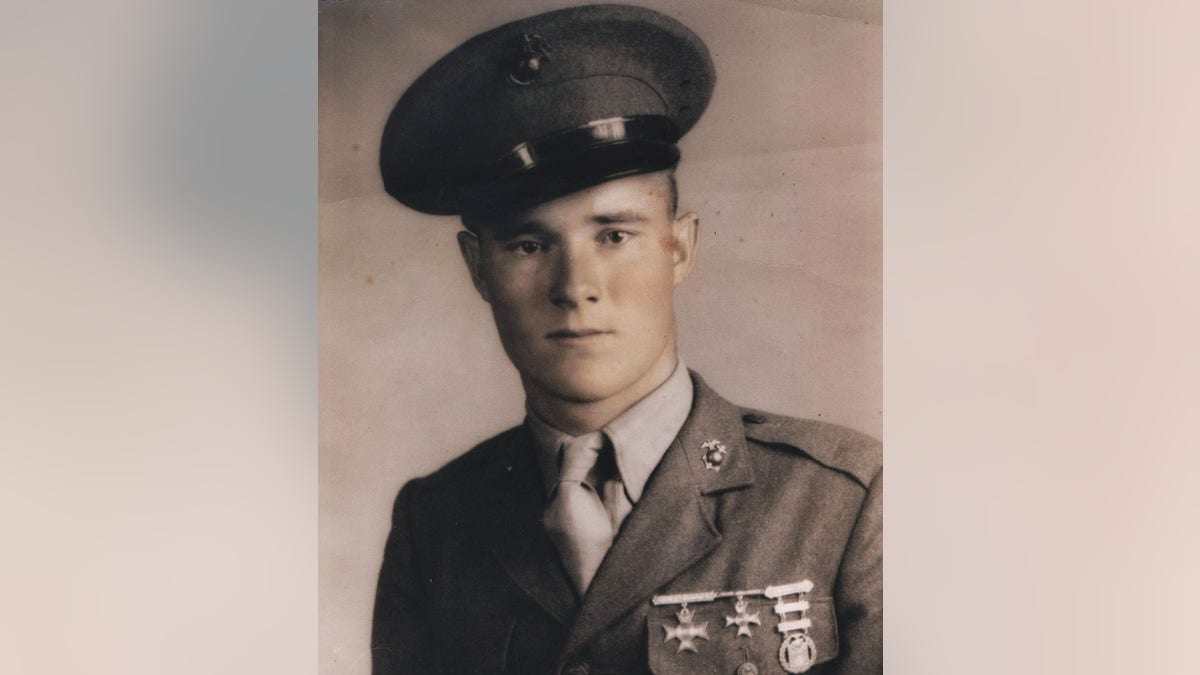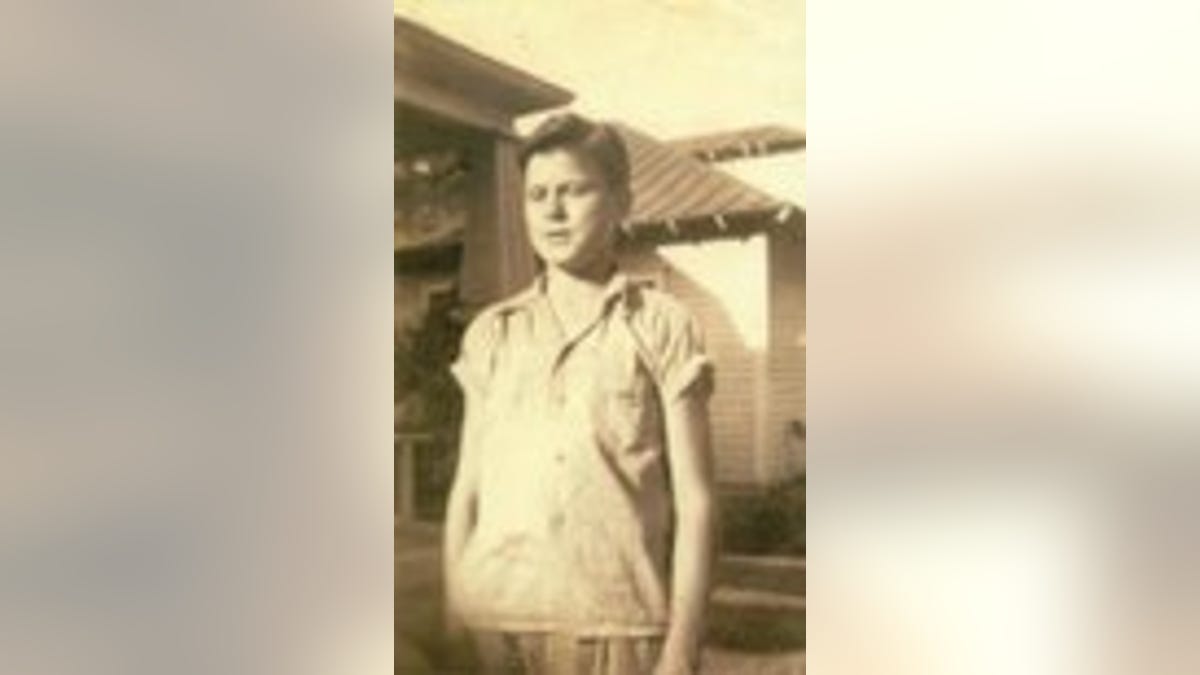Pearl Harbor survivor sends message to younger Americans
. Fox News correspondent William La Jeunesse reports on veteran Jack Holder's push for awareness
When I told my 9-year-old daughter that this summer marked the 77th anniversary of V-J Day, she had no idea what I meant.
"Victory over Japan," I said. "The official end of World War II."
I started to explain how World War II was one of the most devastating conflicts in history. How the war’s outcome markedly shaped the modern world—including her ability to freely make choices today. How there are actually two dates to remember—August 14, 1945, when President Harry Truman told war-weary citizens that Imperial Japan had surrendered unconditionally, and September 2, 1945, when the surrender document was signed aboard the USS Missouri in Tokyo Bay.

New York City celebrating VJ Day at the end of World war Two in Japan 1945.
But I stopped and said, "Here’s a better plan. Let me tell you about a few people who were actually there." The World War II veterans I’ve interviewed over the years have passed away now, but I showed my daughter pictures and carefully explained who they were and what they sacrificed for our freedom.
Sid Phillips, 17, was sipping a soda at a drugstore in Mobile, Alabama, when he heard that Japan had attacked Pearl Harbor. He jumped on his bicycle, rode home, and enlisted in the Marine Corps the very next day.

Sid Phillips and his sister Katharine
Sid fought on Guadalcanal alongside his best friend, W.O. Brown. Infected by severe dysentery, W.O. grew too sick to move. Little medication was available and no hospital. So Sid cared for his friend, wetting his forehead with a rag, telling jokes to ease his spirits, carrying him into the ocean every day to get clean.
LAST REMAINING WORLD WAR II MEDAL OF HONOR RECIPIENT TO LIE IN HONOR AT US CAPITOL
Sid and W.O. both survived and went on to fight in the rain and mud of the tiny islands of New Britain and Pavuvu. The troops were constantly hungry, dirty, and exhausted. Land crabs scuttled into their boots at night. The fighting, Sid said, was "simply brutal."
R.V. Burgin grew up on a farm in Jewett, Texas. During high school he was captain of his football team. He enlisted because "I knew I had to do my duty," he said.

R.V. Burgin in an undated photo
R.V. was sent to the Pacific with the 1st Marine Division to fight in the jungles of New Britain. It was kill or be killed. He faced nerve-wracking nighttime banzai charges. The enemy sprinted toward them in waves, rifles outstretched, bayonets affixed to the barrels.
On the tiny island of Peleliu, the troops fought around the clock. Once, RV fought for two and a half days straight. His sergeant ordered him to get some sleep. RV crawled in a shell hole in front of a big gun that was still firing every minute. He slept for twelve hours in all that racket, then got up to fight again.
CLICK HERE TO GET THE OPINION NEWSLETTER
Joe Johnson needed to escape a difficult home life in Memphis. He was only 14 when he fibbed about his age to join the U.S. Army. The boy was sent with the 31st to the Philippines where he trained as a machine gun loader and bugler.

Joe Johnson was just 14 when he managed to enlist in the Army
Ten hours after Pearl Harbor, the nation of Imperial Japan attacked the Philippines. Joe and his outfit fought back bravely. But the allied troops were outgunned and outmanned, still largely unprepared for war. After five months of hard fighting, General Jonathan Wainwright ran up the white flag, surrendering the allied American and Filipino troops. Joe became a prisoner of war.
Over the next three and a half years, the boy was beaten and starved, forced to work in labor camps and coalmines. All the while, he dreamed of a girl he’d come to love in Manila. At the start of the war, the boy stood 5 feet 7 inches, 135 pounds. By the end, he’d grown to 6 feet 4 but weighed only 109.
"That’s why it’s important for us to remember V-J Day," I told my daughter. "Years ago, many people endured much, so you and I could live in freedom today."
CLICK HERE TO GET THE FOX NEWS APP
Her eyes went wide. "How do we thank them?" she asked.
"By remembering that freedom is never free," I said.











































